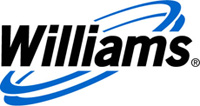In August of 1994, Russ McGuire was serving as Manager of New Product Concepts for WilTel when Bernie Ebbers and LDDS agreed to terms to acquire the business from the Williams Companies. Russ didn’t realize it at the time, but that transaction would set the wheels in motion towards him becoming an entrepreneur.
Russ and his team had been actively developing WilTel’s Internet capabilities, recognizing that the Internet represented tremendous opportunity for a telecom company. In December of 1994, Russ was asked to summarize all new product development activity for Ebbers, and when he did, about a third of activity was Internet-related. When Ebbers reviewed the product pipeline, Russ and his boss, Gordon Martin, were shocked to hear him say “That Internet stuff? Shut it down. The Internet’s a toy. Businesses will never pay for it.” Russ and Gordon returned to Russ’ office and called David Cordeiro in. Russ had hired David specifically to spearhead the Internet activity. They agreed that the Internet opportunity was too big to walk away from. That night they met at a local diner and began working on their business plan.
Since Gordon and David both had MBAs, Russ volunteered to lead development of the business plan to gain experience. On March 1, 1995 the three young men turned in their resignations and officially opened their door as Digital Frontiers, LLC, a web-development firm. Most of their WilTel/Worldcom co-workers thought they were crazy. (It’s important to note that the Netscape IPO had not yet happened. Yahoo wasn’t yet incorporated. Ebay hadn’t held a single auction. Amazon hadn’t sold a single book. All of those things would happen later that year, but in Tulsa, Oklahoma in March 1995, quitting your cushy corporate job to build an Internet startup was unheard of.) That day they had their first offer to buy the company. They didn’t take that offer. They’d already been working on building a book of business, signed a lease for offices, ordered a T-1 from Southwestern Bell, Internet service from Netcom, and two Sun servers. They brought with them a team of college interns who had been doing development work for them at WilTel, and they continued to add to the team. The first week, they had to rush out and buy (and assemble) furniture for an important meeting with Sabre, the reservations division of American Airlines. They quickly had major development contracts with PennWell Publishing (the industry leader for the Oil and Gas Industry), The Williams Companies, UniDial Communications, a division of Philipps Petroleum, Parker Drilling, and several other local Tulsa businesses. They also continued to collect offers to buy the business.
both had MBAs, Russ volunteered to lead development of the business plan to gain experience. On March 1, 1995 the three young men turned in their resignations and officially opened their door as Digital Frontiers, LLC, a web-development firm. Most of their WilTel/Worldcom co-workers thought they were crazy. (It’s important to note that the Netscape IPO had not yet happened. Yahoo wasn’t yet incorporated. Ebay hadn’t held a single auction. Amazon hadn’t sold a single book. All of those things would happen later that year, but in Tulsa, Oklahoma in March 1995, quitting your cushy corporate job to build an Internet startup was unheard of.) That day they had their first offer to buy the company. They didn’t take that offer. They’d already been working on building a book of business, signed a lease for offices, ordered a T-1 from Southwestern Bell, Internet service from Netcom, and two Sun servers. They brought with them a team of college interns who had been doing development work for them at WilTel, and they continued to add to the team. The first week, they had to rush out and buy (and assemble) furniture for an important meeting with Sabre, the reservations division of American Airlines. They quickly had major development contracts with PennWell Publishing (the industry leader for the Oil and Gas Industry), The Williams Companies, UniDial Communications, a division of Philipps Petroleum, Parker Drilling, and several other local Tulsa businesses. They also continued to collect offers to buy the business.
 On May 1, two months after opening their doors, they agreed to sell Digital Frontiers to The Williams Companies. They continued to build the business within Williams, and with the additional resources, expanded into building and operating a nationwide IP network to provide Internet connectivity services to Williams’ business customers. The company went on to build some impressive capabilities, helping PennWell create OGJonline, one of the first industry vertical online communities (including a custom package of browser, IP stack, and dialer), helping a local hospital create the first Internet nursery publishing photos of newborn babies, and creating some fun Java-based interactive content for Zebco, the Tulsa-based outdoors company (when Java was very much in its infancy).
On May 1, two months after opening their doors, they agreed to sell Digital Frontiers to The Williams Companies. They continued to build the business within Williams, and with the additional resources, expanded into building and operating a nationwide IP network to provide Internet connectivity services to Williams’ business customers. The company went on to build some impressive capabilities, helping PennWell create OGJonline, one of the first industry vertical online communities (including a custom package of browser, IP stack, and dialer), helping a local hospital create the first Internet nursery publishing photos of newborn babies, and creating some fun Java-based interactive content for Zebco, the Tulsa-based outdoors company (when Java was very much in its infancy).
Over the coming months, Russ, Gordon, and David’s roles within Williams expanded. Gordon eventually became General Manager for the new Network division (he would later go on to even greater success at AFN, Qwest, and EDS). David eventually became VP of Investor Relations. And Russ became VP of Strategic Development (you can read more on the Executive page on this site). But, the startup bug had bitten.
In some ways, as they moved into Williams, they continued to have “startup” like experiences, just within a firm with way more resources than your typical new venture. In 1999, Williams spun off the Communications business with a successful IPO. In his role as Vice President of Strategic Development, Russ played a key role, spending many hours in New York and Tulsa working with various bankers and lawyers to develop and finalize the S-1 and roadshow materials. Although not one of the presenters, Russ did attend the first roadshow meetings in New York.
 In 2000, Russ left Williams and joined TeleChoice. TeleChoice worked with both established and startup telecom companies, but most of Russ’ work was with entrepreneurial telecom technology firms and their venture capital investors. Russ developed a 2-day strategy lab process to help a management team to quickly understand and crystallize their core strategy. At the end of each lab, they would spend an additional half day applying the strategy to address the most critical issue facing the startup (e.g. given limited resources, which prospect should they focus on, or who should they hire next, or which strategic partner was most critical to their success). Russ was also asked to serve as a strategic advisor to several startups including Mantra, PhotonEx, Crescent Networks, and Bay Packets.
In 2000, Russ left Williams and joined TeleChoice. TeleChoice worked with both established and startup telecom companies, but most of Russ’ work was with entrepreneurial telecom technology firms and their venture capital investors. Russ developed a 2-day strategy lab process to help a management team to quickly understand and crystallize their core strategy. At the end of each lab, they would spend an additional half day applying the strategy to address the most critical issue facing the startup (e.g. given limited resources, which prospect should they focus on, or who should they hire next, or which strategic partner was most critical to their success). Russ was also asked to serve as a strategic advisor to several startups including Mantra, PhotonEx, Crescent Networks, and Bay Packets.
 By 2002, the Internet boom was fading and TeleChoice was struggling to find enough work to maintain current staffing. Russ asked if he could go half-time to pursue a new business idea that was germinating. On March 1, 2002 Russ officially founded Seek First Networks, LLC. The business was spawned from Russ’ conviction that he was too concerned with earning a paycheck and instead needed to focus first on serving God’s kingdom. He set out to build tools to help small churches and ministries to leverage the web to connect with those that they serve. Although he had a business model for how he would generate revenues, his plan only generated $10 over 2 years. However, God used a different
By 2002, the Internet boom was fading and TeleChoice was struggling to find enough work to maintain current staffing. Russ asked if he could go half-time to pursue a new business idea that was germinating. On March 1, 2002 Russ officially founded Seek First Networks, LLC. The business was spawned from Russ’ conviction that he was too concerned with earning a paycheck and instead needed to focus first on serving God’s kingdom. He set out to build tools to help small churches and ministries to leverage the web to connect with those that they serve. Although he had a business model for how he would generate revenues, his plan only generated $10 over 2 years. However, God used a different  revenue stream to provide $tens of thousands so that the work could continue. At the end of 2003, Russ joined Sprint as director of strategy and transformed Seek First Networks, LLC into a non-profit ministry, Living Stones to continue to provide software tools and a cloud-based web service for churches and ministries. At last check, the service was being used by churches in over 50 countries.
revenue stream to provide $tens of thousands so that the work could continue. At the end of 2003, Russ joined Sprint as director of strategy and transformed Seek First Networks, LLC into a non-profit ministry, Living Stones to continue to provide software tools and a cloud-based web service for churches and ministries. At last check, the service was being used by churches in over 50 countries.
Russ and his wife homeschooled their son from birth through high school. As his son was approaching high school, Russ saw the value of providing an entrepreneurial opportunity for him and other homeschooled students. On January 6, 2009, he officially created Christian Homeschool Network, LLC to develop and operate an online social network for Christian homeschool families. Russ helped develop the software,  provided mentoring, and provided overall management, but homeschooled interns had specific areas of the business for which they were responsible, ranging from software development to graphic design to marketing and business development. Russ also established an Advisory Board, made up of business, church, and business ministry leaders who regularly met with the team to provide feedback and counsel.
provided mentoring, and provided overall management, but homeschooled interns had specific areas of the business for which they were responsible, ranging from software development to graphic design to marketing and business development. Russ also established an Advisory Board, made up of business, church, and business ministry leaders who regularly met with the team to provide feedback and counsel.
The service initially launched as Hschooler.net and grew to a few thousand members. It partnered with a local homeschool organization to more dynamically connect their community. In April 2013, the business rebranded as CXfriends and broadened its scope to be “The Facebook alternative for Christian families.” The internship model not only made the students accountable for key business functions, but also made them virtu![]() al equity owners. Instead of being paid a salary, the interns earned virtual equity, and whenever the business earned a profit (which happened several times over the 5 year life of the business), 50% of profits were distributed to the virtual equity owners. The success of this business cannot be measured in dollars or subscribers, but can be seen in the impact on the lives of the students who interned. In some cases, their career paths have been influenced by the opportunities they were given by CHN. In all cases, they learned more about how a business operates than they would learn in a high school classroom. (Russ was interviewed for the Generations With Vision radio program in 2011 about entrepreneurship, mentoring, and the CHN business model. You can hear the interview online.) And for some, perhaps they too have been bit by the startup bug.
al equity owners. Instead of being paid a salary, the interns earned virtual equity, and whenever the business earned a profit (which happened several times over the 5 year life of the business), 50% of profits were distributed to the virtual equity owners. The success of this business cannot be measured in dollars or subscribers, but can be seen in the impact on the lives of the students who interned. In some cases, their career paths have been influenced by the opportunities they were given by CHN. In all cases, they learned more about how a business operates than they would learn in a high school classroom. (Russ was interviewed for the Generations With Vision radio program in 2011 about entrepreneurship, mentoring, and the CHN business model. You can hear the interview online.) And for some, perhaps they too have been bit by the startup bug.
 In August 2015, Russ moved to Oklahoma City and became Entrepreneur in Residence for Oklahoma Christian University. In this role, he came alongside students with startup ambitions and helped them take the next step, whatever that may be. Over the first few months at OC, Russ worked with a team of students to develop a business plan to take software developed at the university and commercialize it.
In August 2015, Russ moved to Oklahoma City and became Entrepreneur in Residence for Oklahoma Christian University. In this role, he came alongside students with startup ambitions and helped them take the next step, whatever that may be. Over the first few months at OC, Russ worked with a team of students to develop a business plan to take software developed at the university and commercialize it.
Altimeter Software, LLC was officially formed in January 2016.  In April, the student team made it to the final round of the statewide business plan competition and Austin McRay, the team leader, won the best pitch award. As the company continued its development, Russ continued to play a key role, coaching the young management team, pitching in to write software, and providing leadership to the technology team.
In April, the student team made it to the final round of the statewide business plan competition and Austin McRay, the team leader, won the best pitch award. As the company continued its development, Russ continued to play a key role, coaching the young management team, pitching in to write software, and providing leadership to the technology team.
![]() The following year, Russ again helped a student team with their business plan. This team won the Small Business division of the Love’s Entrepreneur’s Cup competition. VisuALS Technology Solutions, LLC was officially formed in April 2017 with Russ serving as CEO. VisuALS produces a device which enables people with debilitating conditions like ALS to be able to communicate with their loved ones. It was a real blessing for Russ to work with students, young alums, and faculty in launching and operating a business that not only quickly grew to serve customers nationwide, but that was focused on the Christian ideals of loving God and loving our neighbors.
The following year, Russ again helped a student team with their business plan. This team won the Small Business division of the Love’s Entrepreneur’s Cup competition. VisuALS Technology Solutions, LLC was officially formed in April 2017 with Russ serving as CEO. VisuALS produces a device which enables people with debilitating conditions like ALS to be able to communicate with their loved ones. It was a real blessing for Russ to work with students, young alums, and faculty in launching and operating a business that not only quickly grew to serve customers nationwide, but that was focused on the Christian ideals of loving God and loving our neighbors.
In 2018, the team that Russ mentored again won their division in the Love’s Cup competition. This business was based on small wind turbine technology developed at Oklahoma Christian. Based on additional field testing of the technology, the team decided not to launch an actual business.
 Starting in 2014, Russ also began working with BetaBlox, an innovative startup incubator/accelerator based in Kansas City. While in Oklahoma, Russ helped launch a Tulsa branch of BetaBlox. He has served as mentor/advisor/owner for over a dozen companies going through the BetaBlox program.
Starting in 2014, Russ also began working with BetaBlox, an innovative startup incubator/accelerator based in Kansas City. While in Oklahoma, Russ helped launch a Tulsa branch of BetaBlox. He has served as mentor/advisor/owner for over a dozen companies going through the BetaBlox program.
In late 2018, Russ returned to the Kansas City area where he continues to work with BetaBlox startups, to advise VisuALS and Oklahoma Christian’s other startup initiatives, and to work with SDG’s clients.
